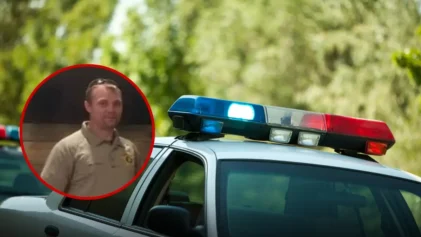Who gets to determine what form of reparations are appropriate? It’s a question many scholars and activists have tried to answer for years. The uptick in white-led online groups issuing payments to Black people under the rubric of reparations has some people in the African-American community concerned.
“Buying food and paying rent does not come close to being reparations at all,” said Dr. Joyce Hope Scott, a Boston University clinical professor African-American studies and co-coordinator and investigator of the International Network of Scholars and Activists for African Reparations.
As conversations heat up about what reparations should look like for descendants of American slavery, some organizations like Reparations Roundtable are emerging with more of a hands-on approach.
“It’s a feeling of a place where I could just step in and really make a difference one on one in someone’s life,” said Abby Tourtellotte, Reparations Roundtable administrator.
“It’s a praiseworthy gesture, but they have no right, no authority, and certainly no sanction to define or determine what constitutes as reparations,” said Hope Scott.
However, for Lashaunda Doxtator, 35, mother of six kids, she is in full support of online groups like Reparations Roundtable raising money to help Black people in need. In early 2019, she moved from her hometown of Milwaukee, Wisconsin, to Oshkosh, Wisconsin, because of the rise in street violence in her hometown. After her relocation she found herself low on money.
“Upon moving to another city where I didn’t know anyone, I kind of came into a hardship where my lights were being turned off,” said Doxtator.
Doxtator says she is not close with her family, so she turned to the next best place for help, Facebook. On Facebook is where she found Reparations Roundtable.
“She basically said they were going to help me with covering my rent, and covering my light bill which they did, and it’s been a constant relationship since then,” said Doxtator.
Reparations Roundtable is an organization made up of mostly white people from across the country. The organization has been around since 2017 and has distributed nearly $400,000 to families. The process to receive help begins when a person in need requests help on the group’s Facebook page. After an interview to assess need, group numbers tap into their networks to raise money.
“We had a contribution that was $500 dollars that came in over the last week, but we also have $5 and $10 dollars coming in regularly, so it’s all of us reaching out to the folks that we know and seeing and asking them what you can give,” said Tourtellotte.
Hope Scott has dedicated her entire career to the study and advocacy of reparations. She says while it is admirable of groups like Reparations Roundtable to help Black people in need, she does have a problem with them using the term reparations.
“Repair reparations, restorative justice, restitutions, all of that has to do with repair, the damage, the psychological, the spiritual, and cultural theft, the abuse that have happened and is ongoing and happening every day,” said Hope Scott.
Hope Scott points to the long history of reparations since the days of slavery. From the first recorded incident of Belinda Sutton seeking reparations in 1788 to more recently H.R. 40.
H.R. 40 is legislation that was first introduced in 1989 by the late Rep. John Conyers of Michigan. The legislation would establish a committee to study reparations. It was not until this year that H.R. 40 finally advanced out of committee in the House of Representatives.
“Here we are today marking up for the first time in the history of the United States of America, any legislation that deals directly with the years and centuries of slavery of Africans and African American people,” said Democratic Rep. Sheila Jackson-Lee of Texas in a House Judiciary Committee session.
“I would encourage these young people on social media to do some research to see what people have been calling for and have been pushing for reparations and then they’ll get some idea what people from the affected communities have felt what was reparations,” said Hope Scott.
Tourtellotte says Reparations Roundtable has done its research on reparations and feels they cannot sit back and wait on the government to do its part including advancing H.R. 40.
“The House bill should be passed, made into law and that should go forward, but we also recognize, we can’t rely on the government alone, there are needs right now,” said Tourtellotte.


